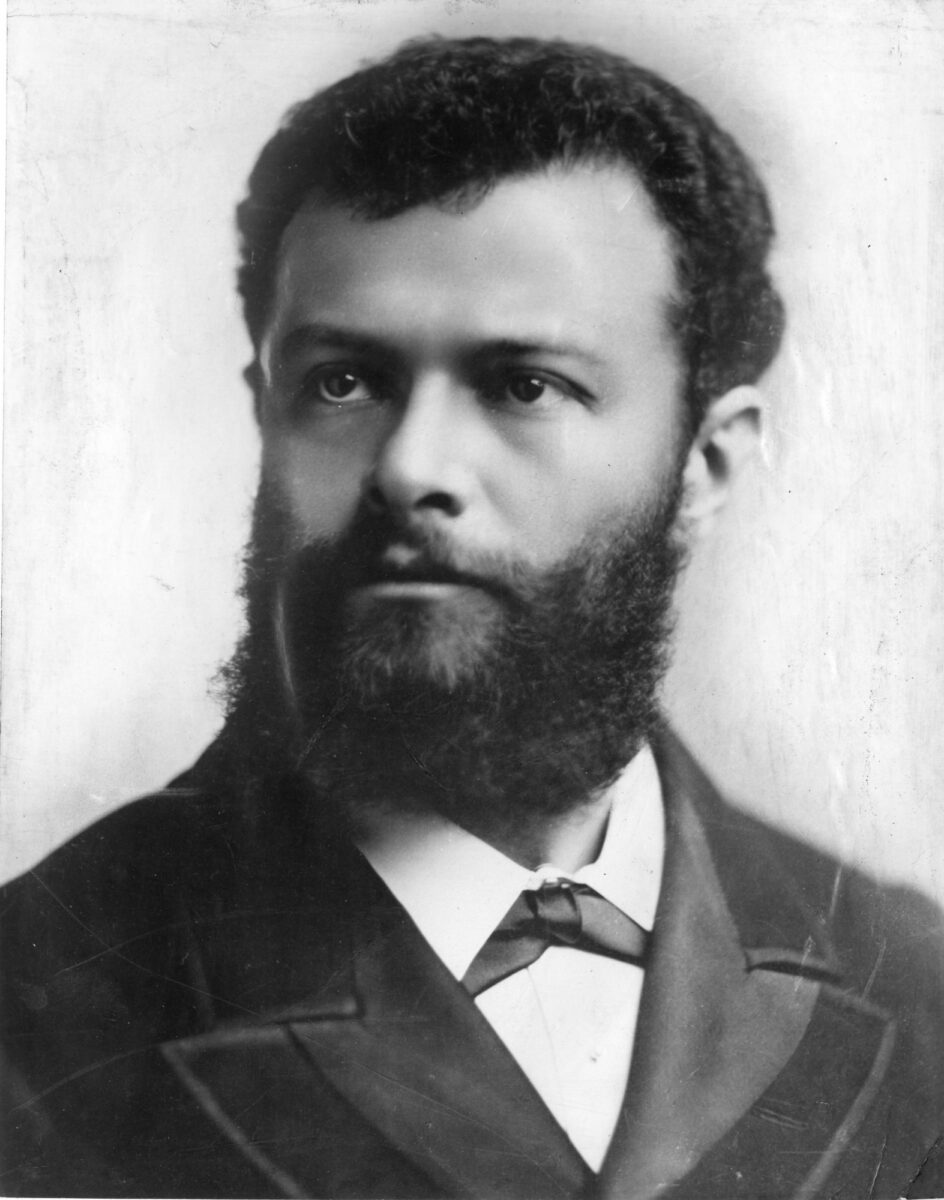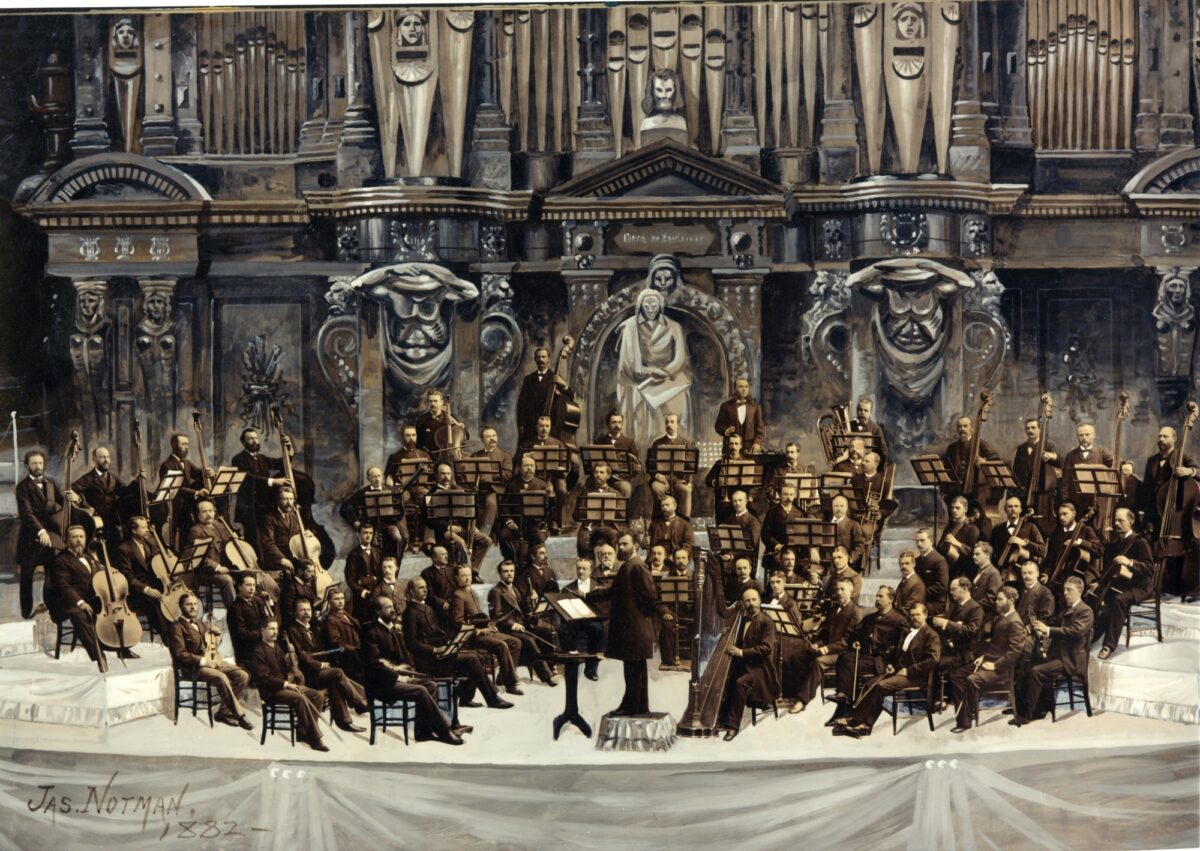Georg Henschel, the First BSO Conductor

Biography
Georg Henschel was born in Breslau on February 18, 1850, singing in public by the age of 9, and attending the Leipzig Conservatory by the age of 17. He quickly proved proficient in voice, composition, piano, and conducting. He soon was securing major engagements as a baritone under Verdi and Brahms, the latter was a major influence on him. The composer from Hamburg always admired his talents, Henschel was introduced to friends as "a singer who composes."
In 1879, while in London, he met a 19-year-old soprano, born in Columbus, Ohio, whose family moved to Boston when her vocal talents developed. Lillian Bailey made a triumphant return home to Massachusetts and on March 3, 1881, appeared with her fiancé at a concert by the Harvard Musical Association. They were married six days later.
It was there that Henry Lee Higginson heard the two perform, but it was Henschel's conducting of his Concert Overture that impressed Higginson enough to offer him to conduct a new orchestra he was launching, the Boston Symphony Orchestra.
The first three seasons were an artistic success, the ensemble gave nearly as many concerts as the New York Philharmonic had in their first 30 seasons. There were nearly as many performances outside of Boston as in the Music Hall (now the Orpheum Theatre). But it was a financial drain. Higginson lost a small fortune but soldiered on.
It isn't clear today who decided that Henschel's term was to conclude after three seasons, but at the final Friday afternoon public rehearsal, the orchestra and audience surprised the conductor with "Auld Lang Syne."
At the end of his tenure, the Henschels left America, not for central Europe, but for England, grateful for a country that wasn't poisoned with anti-Semitism. Continuing his conducting career on top of his voice recitals and composition, he founded the London Symphony concerts in 1886 (which folded in 1897 to be revived within a decade) and the Scottish Symphony from 1893-1895.
Throughout his active career, his only operatic appearance took place on December 9, 1899, when a cast member became ill in his opera Nubia.
Georg and Lillian Henschel had a daughter in Boston. Helen Henschel, like her father was an active recitalist and also accompanied herself at the piano in performance. When Lillian Henschel died in 1901 at the age of 41, daughter Helen was contralto soloist for the Requiem Georg Henschel wrote in his wife's memory.
Georg Henschel was also an important teacher, replacing Jenny Lind at the Royal College of Music in 1886. Among his many students was Roland Hayes. He was knighted Sir George Henschel in 1914, at the conclusion of his vocal career. That career was revived in 1928, for the Schubert centennial. For a singer born in 1850, Henschel's recordings show an instrument in amazing condition for someone well past the standard singing career. We have only one recording of his conducting, as he participated in the first complete cycle of the Beethoven Symphonies, made for the centennial of Beethoven's death in 1927. Henschel was given Beethoven's Symphony No. 1 (other conductors were Thomas Beecham, Henry Wood, Hamilton Harty and Felix Weingartner).
Sir George Henschel returned to the Boston Symphony for the 50th season. On October 10, 1930 he replicated his first BSO program of October 1881, with a single exception, closing the concert with Wagner's Prelude from Die Meistersinger von Nürnberg. He died in Scotland on September 10, 1934.

The First Season, 1881-1882
The premiere season of the Boston Symphony Orchestra featured 20 programs at Boston's Music Hall, presented on Saturday nights at 8pm, with a public rehearsal the preceding Friday afternoon at 2:30pm. It formed the backbone of the BSO subscription season that continues to this day. Ticket prices for the season were $10 or $5 depending on location, single concerts were either 75 cents or 25 cents. The Friday afternoon public rehearsals were 25 cents no reserved seating. Major Higginson also wanted the students of Harvard University to benefit from his new orchestra, and to that end he presented six concerts on Wednesday evenings at Sanders Theatre in Cambridge, beginning on December 7, 1881. Tickets for the Cambridge season were $2 for Harvard students.
The Second Season, 1882-1883
For the second season Higginson demanded that the musicians be on call exclusively from Wednesday to Saturday if they signed an annual contract, an extremely novel concept for the time. The result was the basis of what we consider a full-time orchestra of today, an annual contract that had 26 Saturday night concerts in Boston, six Sanders Theatre concerts in Cambridge (now moved to Thursday nights), and 19 performances in the major surrounding cities, Salem, Worcester, Lowell, Fitchburg, New Bedford, Newport, Providence, and Portland.
The Third Season, 1883-1884
Georg Henschel's final season as conductor of the Boston Symphony built on the previous two. The season was shortened slightly, from 26 Saturday night concerts down to 24. They continued their appearances at Harvard, with six concerts at Sanders Theatre, and visited a dozen cities, returning to Portland, Providence, Newport, Fitchburg, Worcester, Lynn, Lowell, New Bedford, and Salem, and making first visits to Melrose, Wakefield, Fall River, and Stockbridge.
